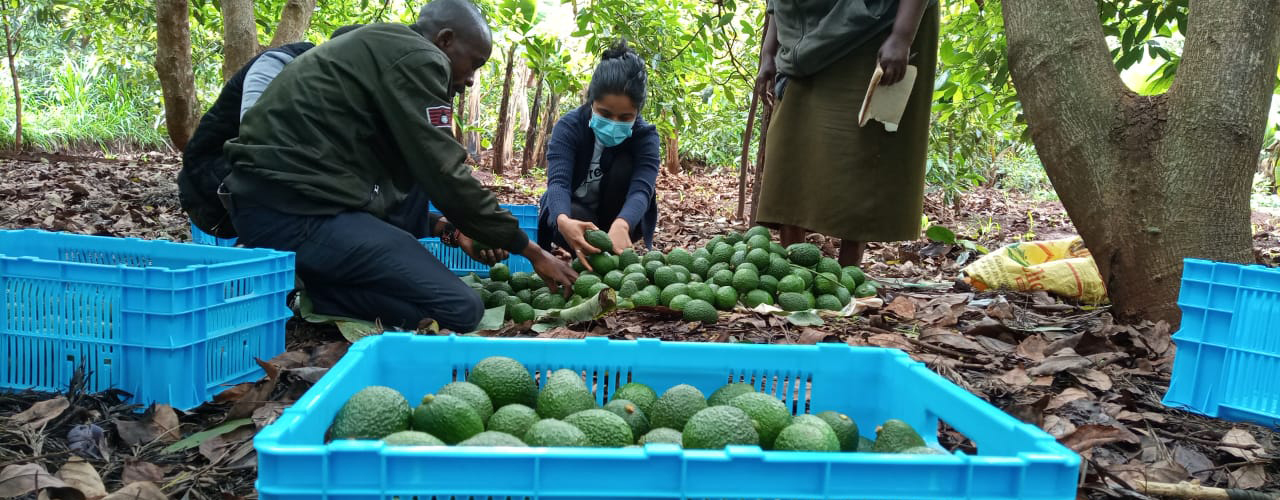
EEP Africa Knowledge Week 2021 kicked off with an agriculture-energy nexus session on Cooling as a Service.
This virtual event on 22 November featured findings from the Global Leap Off-Grid Cold Chain Challenge, managed by the Efficiency for Access coalition, followed by a discussion on lessons from the field with representatives of EEP Africa portfolio companies SokoFresh, InspiraFarms, Phaesun/SelfChill, and Tree_Sea.mals/Baridi.
Increasing access to refrigeration and cold storage is critical to strengthening agricultural value chains and enhancing climate adaptation. By reducing post-harvest loss and improving food security, cooling services can improve rural livelihoods and increase farmer income. However, cold chain technology is unavailable to many smallholder farmers in Africa due to high upfront costs and a lack of reliable electricity. In this event, the panel discussed how solar-powered cooling, PAYG services and a community-based approach are bringing cold chain solutions to new customers and markets.
Ruth Kimani, Associate for Clean Energy at CLASP, offered framing remarks on the critical role of cold chain technologies within modern agricultural systems in Sub Saharan Africa. “In Sub Saharan Africa, it is estimated that 40-50% of food is lost before it reaches the customer, and 30% of these post-harvest losses could be saved if we had cold storage solutions in place,” she said.
According to Power for All, the number of off-grid farmers that are serviceable with cold storage solutions by 2030 is 1.5 million. Ruth noted that “this shows that there is a huge market opportunity for cold chain and it is very essential.” But she pointed out there are many challenges in making these products available and affordable for the target communities.
A key challenge is uncertainty about the commercial viability of first mile cold chain solutions. There is very limited data available on the market and the technology. This data is crucial for raising investment and making decisions on where to set up cold chain businesses and where to expand. There is also a very low level of awareness among target beneficiaries of the cooling as a service business model.
Along the agricultural supply chain, there are various points between production and the consumer at which cold chain is critical, and the key players need to work together to provide coordinated services. Especially in emerging economies, however, cold storage solutions are mainly located near the grid and used by large aggregators or commercial farms that are able to afford the solutions. There are very few cooling services offered at the first mile, where the smallholder farmers can be found.
The affordability of products combined with the commercial uncertainty pose real challenges to the adoption of technologies and services. An audience poll conducted during the webinar indicated that the biggest market barrier to scaling up cooling as a service in Africa is the high cost of products and services (61% of respondents). The audience also noted lack of customer or market data (17%) and weak infrastructure (17%) as key barriers.
The companies represented on the panel are working to address and overcome such barriers. Each speaker shared an overview of their company and then discussed how they are working to ensure products are fit for purpose and that cooling services are accessible and affordable for the customers who need them most. The full session can be viewed in the recording, the presentation can be downloaded here, and highlights from each panelist’s remarks are included below.
Denis Karema, CEO of SokoFresh, noted that it is important to look at the business model from the farmers perspective and the value chain as a whole. “SokoFresh realised that providing cold storage by itself is not a complete solution for the smallholder farmer. They also have a challenge accessing the market so they can afford services like cold storage, and smallholders have a problem with cash flow. They really need instant payment for their produce so we look at integrating credit providers.”
Julian Mitchell, CEO of InspiraFarms, shared that the company focuses on four things in the design process: reducing post-harvest loss, increasing the shelf life, decreasing the OPEX, and giving the grower access to data. “We also offer finance for our customers because this is a critical way to reducing the barrier to getting access to this technology.”
Florian Martini, Project Manager at Phaesun, stressed the need to encourage local value creation. “Our trade partners only buy the core [SelfChill] components from us and then assemble them locally. This allows the costs to be drastically reduced while still maintaining high quality. In addition, the locally available know-how guarantees reliable maintenance and service, which is generally the most important challenge.”
Tracy Kimathi, Founder of Tree_Sea.mals, which has an average age of 28 years old within its executive team, was proud that the Baridi solar chiller is “designed and developed in Kenya by Kenyan youths.” She also stressed the value of the “pay-as-you-chill” business model, which allows customers in the livestock value chain to aggregate and store their meat as a community.
The event was moderated by EEP Africa Portfolio Coordinator Chiedza Mazaiwana.
EEP Africa Knowledge Week is an annual series of events that examine evolving themes and innovative projects in the clean energy sector in Africa. The event in 2021 included sessions on financing, leadership, and the agriculture-energy nexus, including cold chain and agro-processing.


